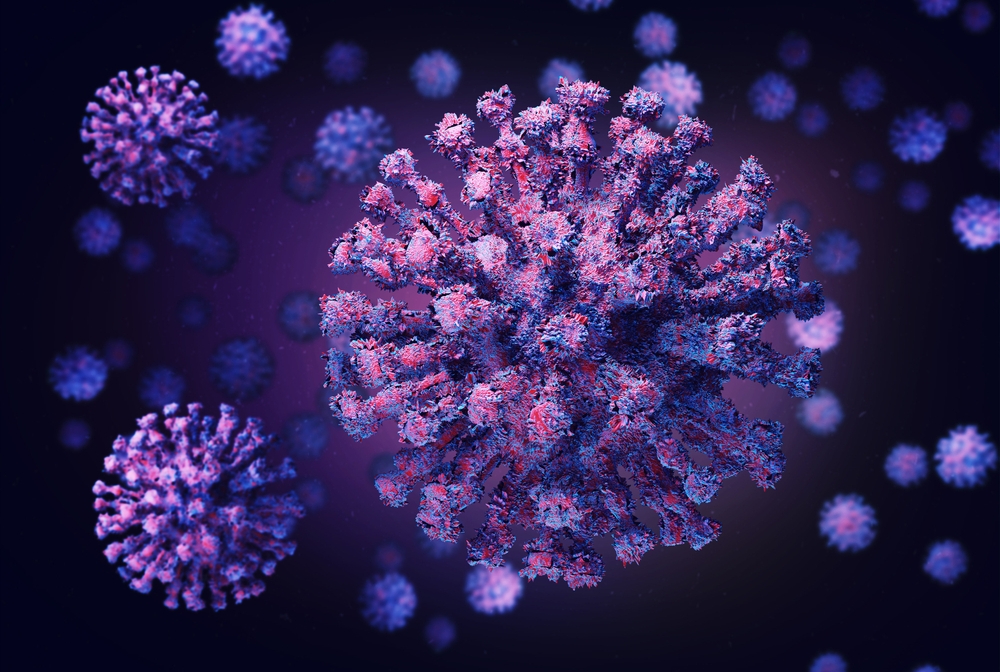
Cancer patients who contracted COVID-19 during the height of the pandemic in New York City had similar outcomes to other patients with COVID-19, a study from researchers at Weill Cornell Medicine and NewYork-Presbyterian has found. The findings suggest that in the absence of other risk factors for poor COVID-19 outcomes, patients with cancer may be able to safely continue treatment during the pandemic. It is important to weigh the risk of severe COVID-19 illness against the risk of delaying cancer treatment, the investigators note.
The study, published Sept. 28 in the Journal of Clinical Oncology, examined outcomes of 585 patients who were admitted to NewYork-Presbyterian/Weill Cornell Medical Center and NewYork-Presbyterian Lower Manhattan hospitals with confirmed COVID-19 during the peak of the epidemic. Twenty percent of the patients had active cancers. The researchers found that these cancer patients were not significantly more likely to die or require intensive care due to COVID-19 when compared with patients without cancer who were of a similar age and had the same number of pre-existing conditions, such as obesity and hypertension.
Fearing poor outcomes from the viral illness, many cancer patients, in some cases at the advice of their doctors, have been suspending or avoiding cancer treatments. The new study’s results suggest that this treatment delay may be unnecessary, particularly for younger patients who have fewer additional health issues that would put them at high risk of serious illness or death if they contract COVID-19.
“Our findings suggest that if you have cancer and you’re relatively young and with no other major illnesses, then your risk of having a severe outcome if you get COVID-19 is not as high as you might expect—so perhaps you can be more confident in continuing your chemotherapy,” said senior author Dr. Manish Shah, the Bartlett Family Professor of Gastrointestinal Oncology and a member of the Sandra and Edward Meyer Cancer Center at Weill Cornell Medicine.
Prior research, including studies during the COVID-19 outbreak in Wuhan, China early this year, have suggested that cancer patients are more likely to have worse outcomes when they are infected with SARS-CoV-2. However, Dr. Shah and his colleagues reasoned that the differences in COVID-19 outcomes observed in those early studies may have been due to the fact that patients with cancer on average are older than patients without cancer, and also tend to have a greater number of other illnesses. Research has shown that these factors strongly predict worse COVID-19 outcomes.
To isolate the effect of having cancer, Dr. Shah and colleagues matched each incoming COVID-19 patient who had cancer with four incoming COVID-19 patients who were the same age and had the same numbers of other illnesses, but did not have cancer. These two “matched cohorts” comprised 117 cancer patients with COVID-19 and 468 non-cancer COVID-19 patients.
Although nearly half of the cancer cohort had received chemotherapy or other immune-suppressing drugs within the three months prior to getting COVID-19, this cohort did not appear to fare worse than their counterparts. The COVID-19 mortality rates for the two groups were 24.8 percent and 21.4 percent respectively—not significantly different in statistical terms. There was also no significant difference between the cohorts in the composite outcome of death, intubation on ventilator or admission to an intensive care unit.
Even when comparing non-cancer patients to the nearly 40 percent of cancer patients who had received chemotherapy within the prior 90 days, the researchers found no significant difference in outcomes.
“Our analysis linked the severe outcomes in these patients to advanced age, obesity and other clinical markers, but not to cancer,” said Dr. Shah, who is also director of the Gastrointestinal Oncology Program at Weill Cornell Medicine and chief of the Solid Tumor Oncology Service and co-director of the Center for Advanced Digestive Disease at NewYork-Presbyterian/Weill Cornell Medical Center.
Dr. Shah and his colleagues hope now to do larger studies to compare outcomes across different ethnic groups.
The researchers emphasized that cancer care centers should continue COVID-19 testing, social-distancing and other practices to reduce the chance of transmitting this highly infectious disease among cancer patients. Although there is no conclusive evidence that cancer patients are more easily infected than others, the immune suppression caused by many cancer treatments could enhance infection risk, even if it doesn’t lead to worse outcomes after infection.

